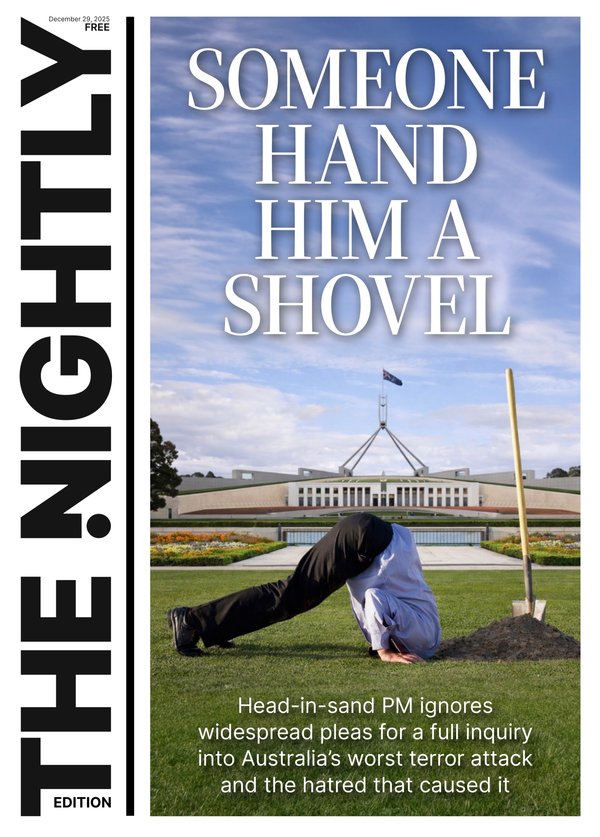Why Australia’s country music capital Tamworth may hold secret to saving struggling music festival industry
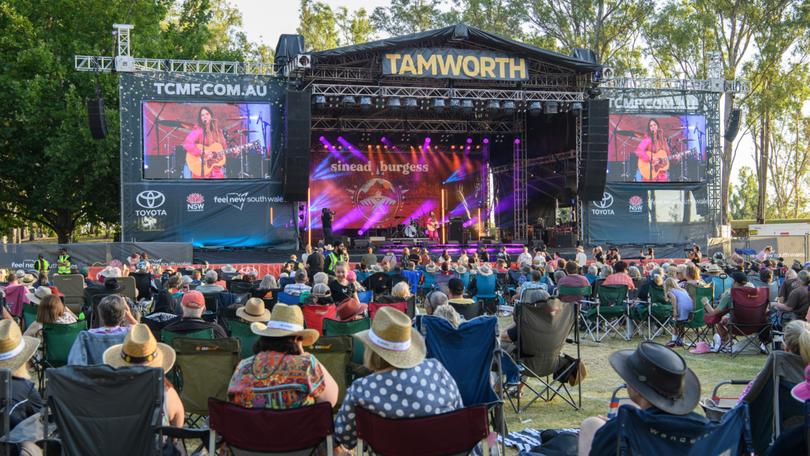
For ten days in January, the city of Tamworth comes alive.
Tens of thousands of keen country music lovers make the pilgrimage for the famous Tamworth Country Music Festival — listening to buskers side by side on Peel Street, or flocking between pubs and clubs all curating their line-ups with over 700 artists to choose from.
With the exception of one COVID-affected cancellation in 2021, they’ve run successfully every year since 1973. That includes this year’s edition that organiser Barry Harley says was their biggest in about a decade, with tens of millions of dollars poured into the town’s economy.
Sign up to The Nightly's newsletters.
Get the first look at the digital newspaper, curated daily stories and breaking headlines delivered to your inbox.
By continuing you agree to our Terms and Privacy Policy.So how can this music festival survive when so many others are being cancelled in the incredibly tough market?
Harley puts it down to one important reason.
“In our 1800-plus events about 70 per cent of those are free — in venues, on the streets, all those sorts of things,” he says. “People come and, sensibly, could spend the whole ten days here and not spend a penny.
“It’s a very affordable festival, Tamworth.”
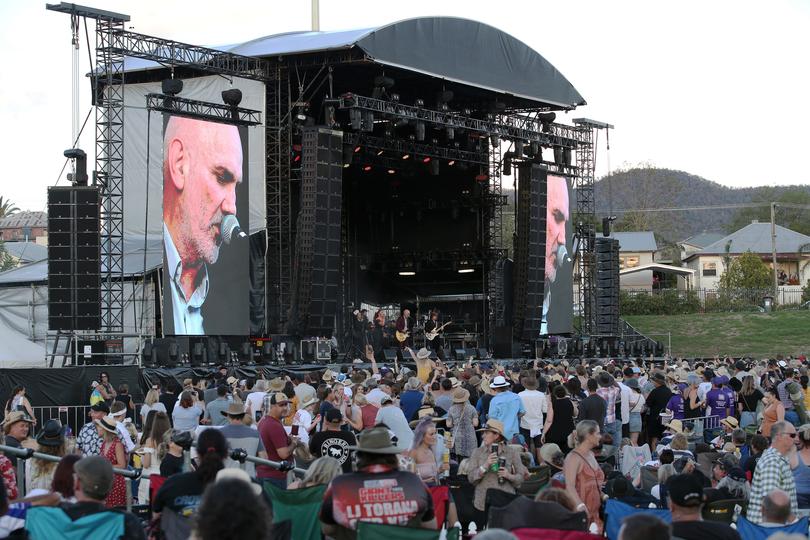
While the event is run by Tamworth Regional Council, local pubs, clubs, restaurants and other venues book the artists and curate their own spread of gigs and events.
The town provides the infrastructure, the venues bring the shows.
“In a year where it might be a bit soft, that softness is amortised across 80-odd venues and probably 50 or 60 promoters,” Harley explains.
This ensures the losses are kept as low as possible.
But organisers of the recently cancelled Splendour In The Grass music festival didn’t have that luxury.
“In a Splendour-type scenario, that’s one person that’s taken the hit,” says Harley.
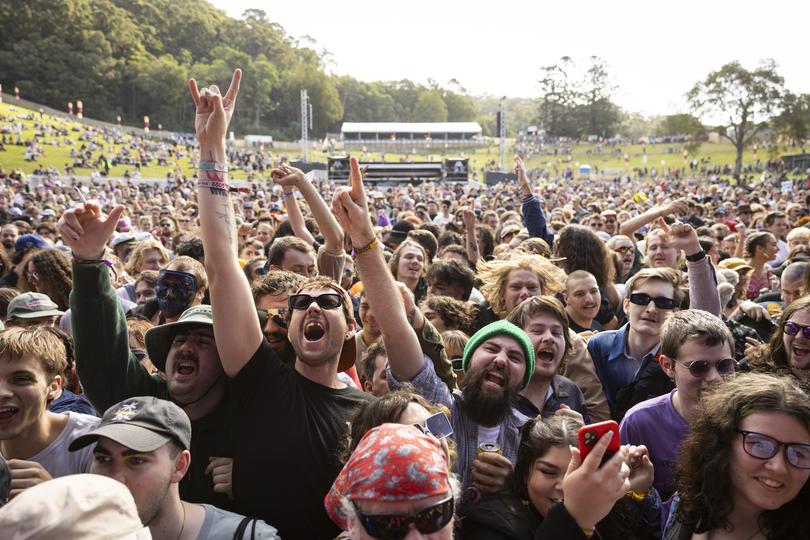
The news of Splendour’s cancellation sent shockwaves through the Australian music industry.
The impact of cost-of-living pressures and rising production costs was laid bare — now that the previously unshakable, stalwart of Australian music had been axed it was DEFCON 5.
Festival organisers realise they have to change their game.
“It takes a lot to effectively establish a small city temporarily for a few days,” explains Australian Festival Association managing director Mitch Wilson.
“The level of ticket sales you have to see in order to cover those costs is well over 95 per cent these days, which makes those margins extremely tight. We’re seeing some festivals that have sold out and not making any money.”
“Tamworth is a shining light for festivals across the country.”
Not only does Tamworth bypass a lot of the economic issues, but according to Wilson its single-genre format could be the future.
The “something-for-everyone” approach of having multiple artists from all different types of music seems to be on its way out.
It’s a trend being driven by 18 to 25-year-olds buying tickets at much lower rates and far later after they go on sale than the same age group before the COVID-19 pandemic.
“That means there’s something in the offering which is not enticing,” says Wilson.
For people to justify spending hundreds of dollars on tickets, fuel, accommodation, food and water they need to know they’re getting bang for their buck.
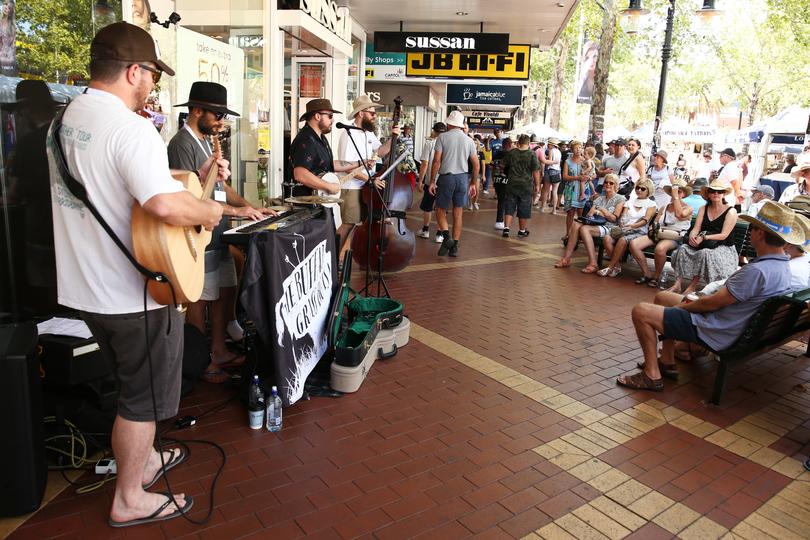
It seems to be a bit easier to take a gamble on a festival where you know what to expect, and in Tamworth’s case you get 10 days of solely country music.
“Lineups are so important,” Barry Harley says. “It’s very difficult for promoters to arrange the perfect lineup, and what they’re trying to do is be all things for all people. I think perhaps we’ve got to be a bit more targeted.”
New South Wales Minister for Music John Graham agrees.
“One of the interesting things is that festival goers’ tastes are changing, and festivals are having to adapt,” he says. “But the biggest impact here is the cost-of-living, and the rising cost pressures on festivals.”
He said the State government was “looking at what (they) could do” to ease those pressures for organisers, as the Australian Festival Association pleads for increased assistance in their upcoming budget.
“We’ve seen a lot of promises from the new Minns Labor government to support the music industry and festivals, but 12 months into their term we’re still yet to see any outcome of that,” says Wilson.
“If we still want to be able to hear Australian music, telling Australian stories we need to provide those opportunities for Australian musicians to really make it in this industry. Supporting festivals is a huge way you can do that.”
But for individual organisers, Tamworth Country Music Festival could be the exemplar. It runs at a profit each year, with the money going directly into local businesses’ pockets.
It’s also established an effective armory against a changing economic climate.
“The template that seems to suit all other festivals, which is different from ours, does lead to that sort of reliance on a certain regularity,” claims Harley.
“We’re not saying that anyone else has got it wrong, but right at the moment Tamworth is one of the most affordable festivals to attend.”
